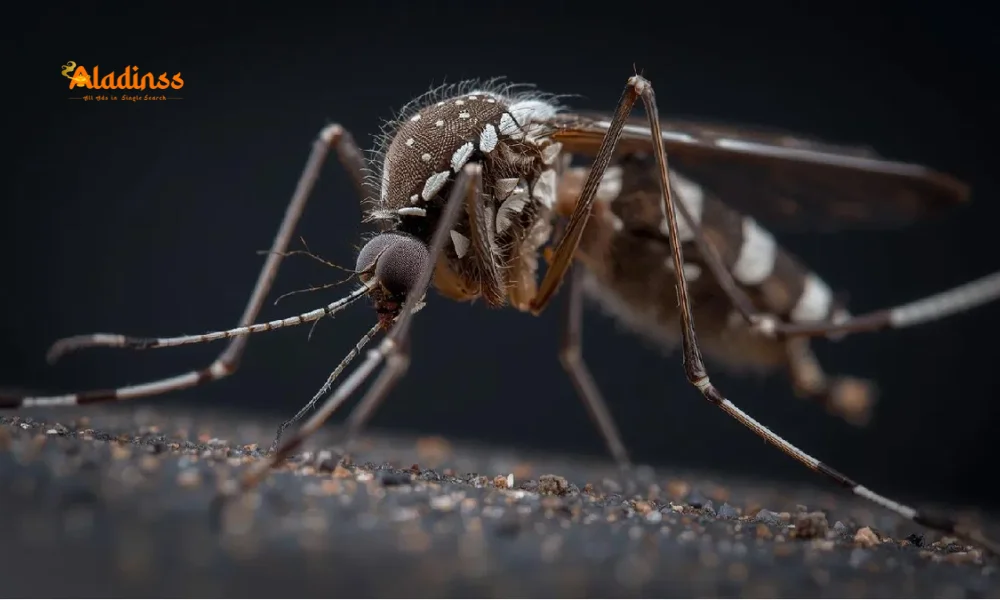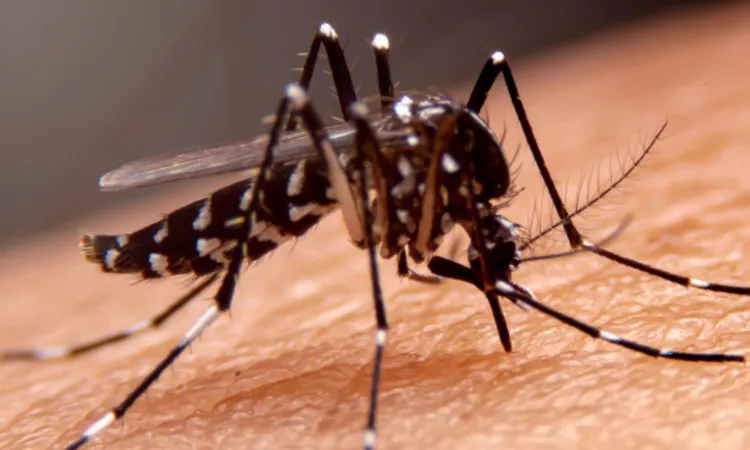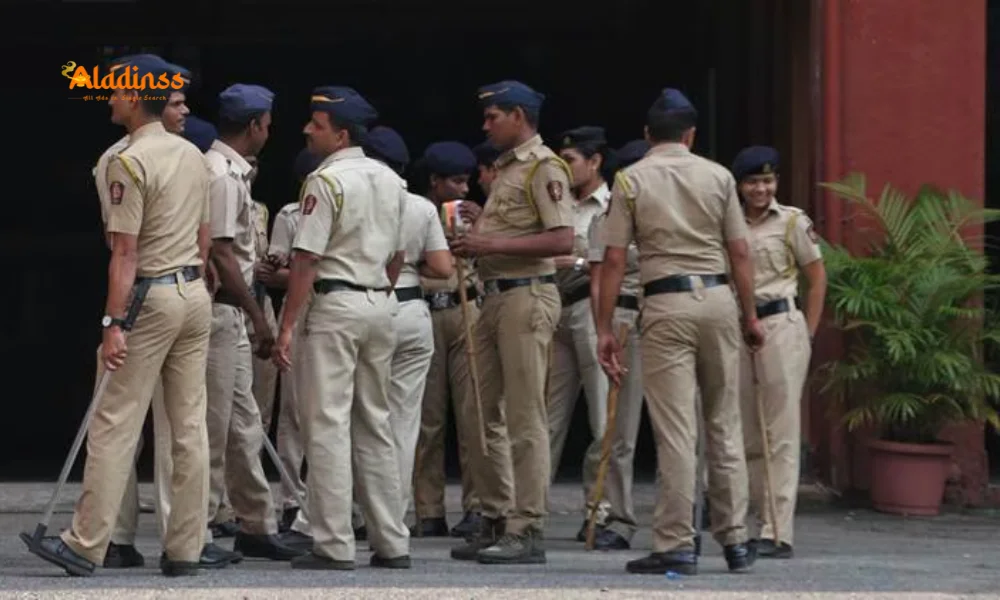Dengue Red Alert for 3 TN Districts

Dengue Fever Surge Prompts Red Alert in 3 Tamil Nadu Districts
As dengue fever Tamil Nadu cases climb sharply over the past few weeks, the state government has declared a red alert for three high-risk districts: Chennai, Tiruvallur, and Coimbatore. This dengue outbreak Tamil Nadu escalation, fueled by Aedes mosquito proliferation amid erratic weather patterns, has prompted urgent directives from the Public Health Department to ramp up surveillance and containment efforts. With over 15,000 infections reported statewide in 2025, the recent spike underscores the vulnerability of urban and semi-urban areas to vector-borne diseases like dengue fever.
Health officials attribute the rise to lingering monsoon moisture and unseasonal rains, creating ideal breeding grounds for Aedes aegypti mosquitoes. The Tamil Nadu health department's joint directors have been tasked with accelerating fogging drives, larval eradication, and community awareness campaigns, especially with the northeast monsoon looming. This proactive stance aims to curb transmission rates, which have surged 30% in the last fortnight, straining hospital resources and alarming residents in affected zones.
The red alert signals a critical phase, mobilizing inter-departmental teams to monitor fever clusters and enforce sanitation protocols. For families in Chennai's bustling suburbs or Coimbatore's industrial belts, this means heightened vigilance against symptoms like high fever and joint pains, hallmarks of dengue fever symptoms that demand prompt medical attention to prevent severe complications.

Statewide Dengue Cases: Alarming Statistics and Recent Trends
Tamil Nadu's dengue cases tally has crossed 15,000 this year, a stark indicator of the dengue fever outbreak's momentum. The Public Health Department reports a notable uptick in the last two to three weeks, coinciding with climate shifts that have prolonged humid conditions favorable for mosquito breeding. Across the state, fever notifications have ballooned, with Aedes mosquitoes-vectors for dengue, chikungunya, and Zika-thriving in stagnant water sources like discarded containers and poorly maintained drains.
In Chennai alone, out of 12,264 fever cases logged, 3,665 have tested positive for dengue, representing nearly 30% positivity-a figure that has healthcare workers on high alert. Tiruvallur follows with 1,171 confirmations from 9,367 fevers, while Coimbatore logs 1,278 from 7,998, highlighting peri-urban vulnerabilities where population density meets inadequate waste management. These dengue statistics Tamil Nadu reveal a pattern: urban sprawl exacerbates risks, as construction sites and slums become hotspots for larval infestation.
Compared to 2024's 12,500 cases, this year's surge signals systemic challenges, including delayed vector control during off-monsoon periods. The department's entomology teams are now deploying GIS mapping to target high-transmission zones, integrating data from NS1 antigen tests and platelet counts to track severity. This data-driven approach, bolstered by WHO guidelines, aims to flatten the curve before the monsoon's deluge amplifies breeding sites.
Also Read: Heavy Rain Alert in 10 TN Districts Today
Red Alert Districts: Focus on Chennai, Tiruvallur, and Coimbatore
The red alert zeroes in on Chennai, Tiruvallur, and Coimbatore, where dengue fever cases Tamil Nadu have concentrated due to shared risk factors like dense housing and erratic water supply. In Chennai, the metropolitan sprawl-home to over 7 million-amplifies transmission, with hotspots in north Chennai's industrial corridors where fever clinics report daily influxes. Tiruvallur, bordering the capital, sees spillover effects, with rural pockets turning into breeding havens amid agricultural runoff.
Coimbatore, Tamil Nadu's Manchester, grapples with factory worker migrations exacerbating close-quarters living, where 1,278 dengue positives strain local PHCs. The alert mandates weekly source reduction drives, targeting coolers, tires, and flower pots-common Aedes lairs. District collectors have activated war rooms for real-time dashboards, coordinating with NGOs for door-to-door education on personal protection measures.
This tri-district focus reflects a strategic containment, preventing spillover to adjacent areas like Kanchipuram or Pollachi. Early interventions, including mass thermal screenings in schools, have curbed absenteeism, but sustained efforts are crucial as cooler evenings post-rainfall extend mosquito activity windows.
Case Breakdown and Transmission Hotspots
A granular view reveals Chennai's 3,665 cases clustered in Ambattur and Avadi, Tiruvallur's 1,171 in Gummidipoondi, and Coimbatore's 1,278 in Singanallur. These dengue hotspots Tamil Nadu stem from inadequate chlorination of overhead tanks and construction debris pooling water.
- Chennai: Slum encroachments near Adyar river.
- Tiruvallur: Peri-urban farms with irrigation canals.
- Coimbatore: Textile mill effluents fostering larvae.
Mapping these aids targeted interventions, like bio-larvicides in high-density zones, to disrupt the Aedes lifecycle.
Government's Response: Directives for Epidemic Prevention
In response to the dengue fever increase, Tamil Nadu's health machinery has swung into action, instructing joint directors to collaborate with municipal bodies for intensified anti-mosquito operations. Fogging with Malathion and source reduction in 1,000+ hotspots are priorities, timed ahead of the northeast monsoon's arrival, which could multiply breeding sites manifold.
Hospitals, both public and private, face mandates for vigilant monitoring: mandatory dengue serology for fever cases over 100°F, platelet transfusions for critical drops, and NS1/IgM reporting to IDSP portals. This integrated surveillance, aligned with NVBDCP guidelines, ensures early detection of clusters, averting outbreaks like 2017's Chennai deluge that overwhelmed facilities.
Community engagement forms the bedrock, with ASHA workers leading house-to-house checks and IEC campaigns via radio and WhatsApp groups. The department's pivot to digital tools-apps for reporting stagnant water-empowers citizens, fostering a participatory model against dengue prevention Tamil Nadu.
Inter-Departmental Coordination for Monsoon Readiness
Pre-monsoon audits include desilting drains and chlorinating tanks, with urban local bodies roped in for enforcement.
- Weekly larval surveys in schools and markets.
- Bio-agent releases in eco-sensitive areas.
- Cross-notification with agriculture for pesticide synergy.
These measures, if sustained, could halve transmission by November's peak.
Minister M. Subramanian's Update: Dengue Deaths and Awareness Drive
Health Minister M. Subramanian, addressing media in Chennai on October 7, 2025, disclosed eight dengue-related fatalities this year, attributing them to delayed reporting and comorbidities. He stressed that while the death toll remains low relative to cases, vigilance is paramount, with autopsies confirming DHF in four instances.
Subramanian outlined a district-wise awareness blitz, deploying mobile units for screenings and jingles on FM radio. "Every household must eliminate water stagnation; dengue prevention starts at home," he urged, echoing calls for behavioral nudges like weekly container emptying. This top-down push, coupled with incentives for clean colonies, aims to embed hygiene as a norm.
His briefing also highlighted vaccine trials for dengue, with Tamil Nadu as a Phase III site, offering hope for endemic control by 2027. Meanwhile, partnerships with ICMR fund research on climate-dengue linkages, informing policy for resilient health systems.
Climate Change's Role in Fueling Dengue Outbreaks
The recent flu-like illnesses in Tamil Nadu, including dengue, chikungunya, and leptospirosis, trace to climatic anomalies-prolonged warm spells and sudden rains disrupting Aedes rhythms. IPCC reports flag South Asia's vulnerability, where rising temperatures extend vector seasons, correlating with a 20% case hike per 1°C anomaly.
In Tamil Nadu, urbanization compounds this: concrete heat islands amplify Aedes survival, while deforestation in Tiruvallur reduces natural predators. Mitigation demands integrated strategies-afforestation, cool roofs, and AI-predicted hotspots-to decouple development from disease burdens.
Global parallels, like Singapore's zero-dengue model via tech surveillance, inspire Tamil Nadu's ambitions, blending tradition with innovation for a mosquito-free future.
Public Precautions: Essential Steps to Combat Dengue
Empowering individuals is key to curbing the dengue spread Tamil Nadu.
- Avoid water accumulation in pots, buckets, and tyres.
- Use repellents and long sleeves during dawn/dusk peaks.
- Seek early care for fever; hydrate with ORS.
These simple acts, amplified by collective effort, can stem the tide of this seasonal scourge.
As October 8, 2025, dawns, Tamil Nadu stands at an inflection: proactive steps today ensure healthier tomorrows, transforming alerts into averted crises.
Comment / Reply From
No comments yet. Be the first to comment!











